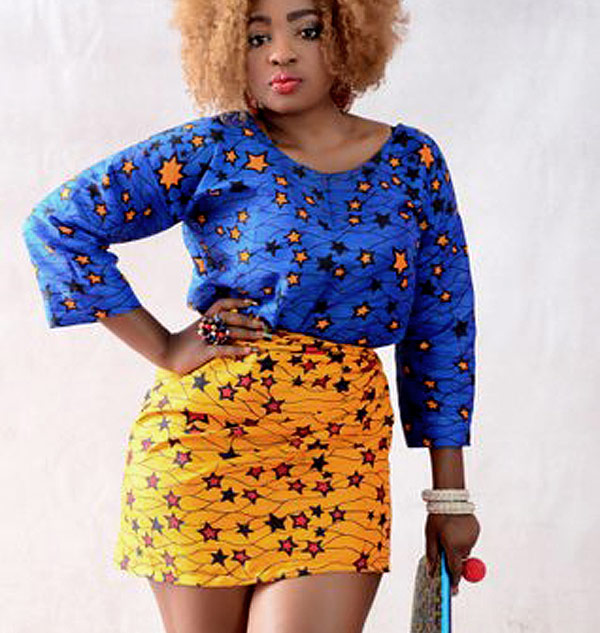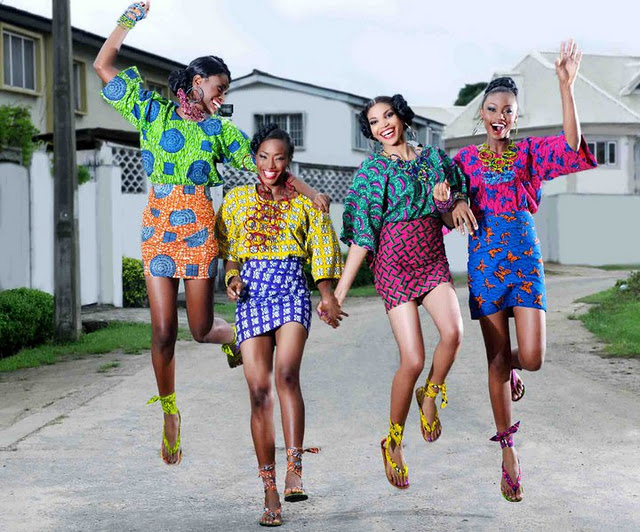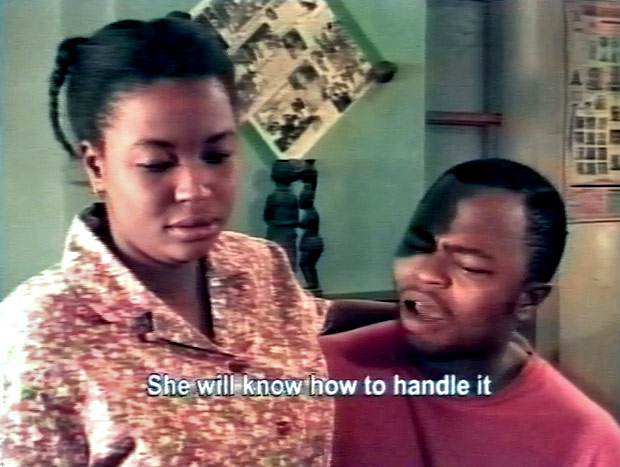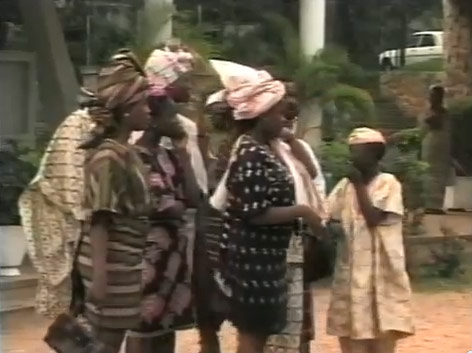
Picture Source: trendysturvs.blogspot.com
At the mention of ‘Oleku’, what automatically comes to mind are short-sleeved Buba and short Iro; as well as the short dresses of the ‘70s, which are all back in vogue. During a recent discussion with a twenty year old lady, I asked her why those attires are referred to as Oleku. Her response was that they are called Oleku because they make those who wear them look stunning. I later discovered that many people share that same view.
‘O le ku’ is a Yoruba expression which literally means “This is serious!” or ” Really hot!” or “So elegant!” depending on the context in which it is being used. The name Oleku first became associated with the fashion of the 1970s fifteen years ago with the arrival of Tunde Kelani’s timeless love classic, Oleku.
The movie, Oleku is an adaptation of Prof. Akinwunmi Ishola’s novel of the same name. Oleku was released by Mainframe Film and Television Productions in 1997. The movie tells the story of Ajani, a final year student of the University of Ibadan who is in search of a life partner due to pressures from his mother. He soon finds himself in a quandary as he becomes involved with three beautiful women- ASAKE, his beautiful old time girl friend who has just finished sixth form and teaches in a school in town; LOLA, a pretty, tall, slim and dark first year student he just met; and finally SADE, a childhood acquaintance who gradually and fortuitously gets promoted to the centre stage of the love drama.
The movie was set in the 1970s, as such, every element reflects just that. Hence, the old vehicles, buildings, costumes, hair-dos and props. In the movie, all the characters are dressed in the old attires that were worn in the period the story represents. During the period of its public release and for some years after, Oleku sparked a fashion revolution in Nigeria particularly with the short Iro and Buba which people began to call Oleku.
The Oleku trend is now back, and in style. There are now different lovely blends of fabrics; some ladies use Ankara, some Adire, and occasionally we get to see Oleku in Aso Oke. It can be simple without extra touches, while some ladies prefer the one with embroidery around the Buba neck and sleeves. Traditionally, the iro (wrapper) stops right above the knee; gele (head-tie) may complement the look. No matter what fabric or colour blend you employ, your Oleku can only have one outcome-elegance! Oleku fashion is here, and it’s here to stay; just like the evergreen movie which gave it the name.

Picture Source: notcaged.blogspot.com / Ituen Basi
By Abisola Ojo
musingandcrafting.com





Pingback: Spotlight on…Akinwumi Isola « Africa in Words()